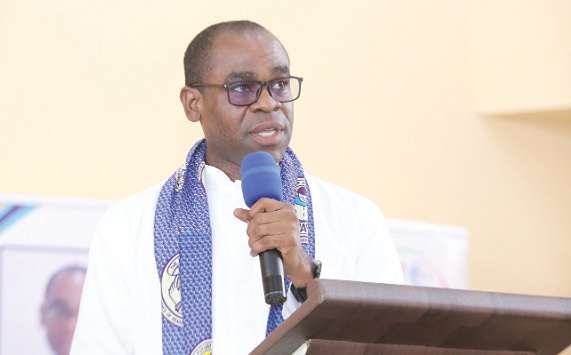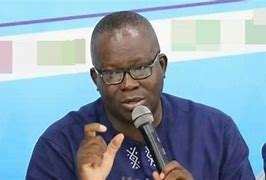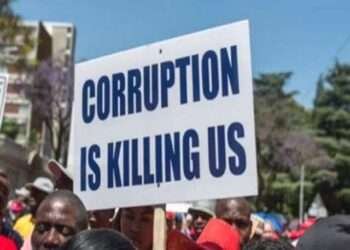The Ghana Education Service (GES) has faced strong criticism from the Conference of Heads of Assisted Secondary Schools (CHASS) regarding the handling of headteachers who have been asked to step aside for charging unapproved fees to fresh students.
Specifically, CHASS has expressed concerns over the lack of communication and engagement with the affected headteachers in the Ashanti Region.
According to te Ashanti Regional Chairman of CHASS, Mr. Zakari Suleman Yeboah, the seven headteachers in the Ashanti Region in particular as of Monday had not received the letters asking them to step aside, as they only saw the letters circulating on social media.
“None of them has received any letter to that effect, they heard the news on social media and they are seriously traumatized. As we speak, they are not themselves and I believe that it wasn’t the right thing to be done.”
Mr. Suleman Yeboah
Meanwhile, CHASS has conveyed concern regarding the accusations directed at 11 Senior High School headmasters nationwide. The Conference, however, emphasized its non-tolerance for the imposition of illegal fees by its members.

Following the Ashanti Regional Education Office’s escorting of seven interdicted headmasters to a meeting, the national CHASS president, Rev. Father Stephen Owusu Sekyere, acknowledged that their interactions with the headmasters have confirmed the veracity of some allegations. Simultaneously, the headmasters asserted that certain claims against them were unfounded.
He additionally observed that the recent development has generated significant levels of unrest, bitterness, fear, and panic within different schools. Consequently, he urges the Ghana Education Service to administer justice with compassion when cautioning headmasters found guilty following investigations.
Rev. Father Owusu Sekyere also appealed to relevant stakeholders to expedite investigations into the matter, seeking a swift resolution. CHASS has firmly advised headmasters nationwide to adhere strictly to the harmonized prospectus and refrain from imposing fees that lack authorization.
The National President of CHASS Rev. Father Stephen Owusu Sekyere said this will prevent similar issues from happening.
Moreover, Angel Carbonou, the President of the National Association of Graduate Teachers (NAGRAT), has instructed all senior high school headmasters to adhere to the regulations, emphasizing that they must refrain from imposing unapproved fees regardless of any reasons they may have.

“It is unfortunate that we have to start the school year with interdictions. For me, the position that I hold is that if someone owns the schools, then you are working for someone, no matter how justified the reasons are the rule states clearly that do not charge any fees in any shape or form. So you don’t charge in any shape or form, there are consequences.
“…the right thing to do is to just report that there is no unit on your prepaid and you will wait until such a time that the authorities will provide the prepaid.”
Angel Carbonou
Free Senior High School Policy And Unapproved Fees
The implementation of the Free Senior High School (SHS) policy in Ghana has brought about significant changes to the education landscape, aiming to provide equal access to education for all Ghanaian students. However, one of the challenges that has emerged is the issue of unapproved fees, which has led to the interdiction of some headmasters.
Unapproved fees refer to charges imposed on students that are not sanctioned or authorized by the government as part of the Free SHS policy. These fees can include charges for textbooks, examination fees, extracurricular activities, and other miscellaneous expenses. The Free SHS policy intends to alleviate the financial burden on parents and ensure that education is accessible to all students, regardless of their socio-economic background. Therefore, any additional fees imposed on students contradict the principles of the policy.

To address this issue, the Ghana Education Service (GES) has taken a firm stance against unapproved fees. The GES has issued directives to schools, emphasizing that the Free SHS policy covers tuition, textbooks, and other essential educational materials. Any charges beyond these approved fees are considered unacceptable. The GES has warned headmasters against imposing unapproved fees, and those found in violation of these directives have faced disciplinary actions, including interdiction.
The interdiction of headmasters who impose unapproved fees serves as a deterrent and sends a clear message that the government is committed to ensuring the accessibility and affordability of education. It also serves to protect the rights and welfare of students and their families. By holding headmasters accountable for their actions, the government aims to create a more equitable education system and promote transparency in the implementation of the Free SHS policy.
While the interdiction of headmasters may lead to temporary disruptions in school administration, it is a necessary step to enforce the policies and principles of the Free SHS program. It is important to strike a balance between providing quality education and ensuring that the policy’s benefits reach all students without imposing financial burdens on their families.
To further address the issue of unapproved fees, it is crucial to improve communication and awareness among schools, parents, and students regarding the scope and coverage of the Free SHS policy. Clear guidelines and regular training sessions can help headmasters understand their responsibilities and obligations under the policy, ensuring compliance and preventing the imposition of unapproved fees.
READ ALSO: Vice President Launches YEA’s Business And Employment Assistance Programme




















